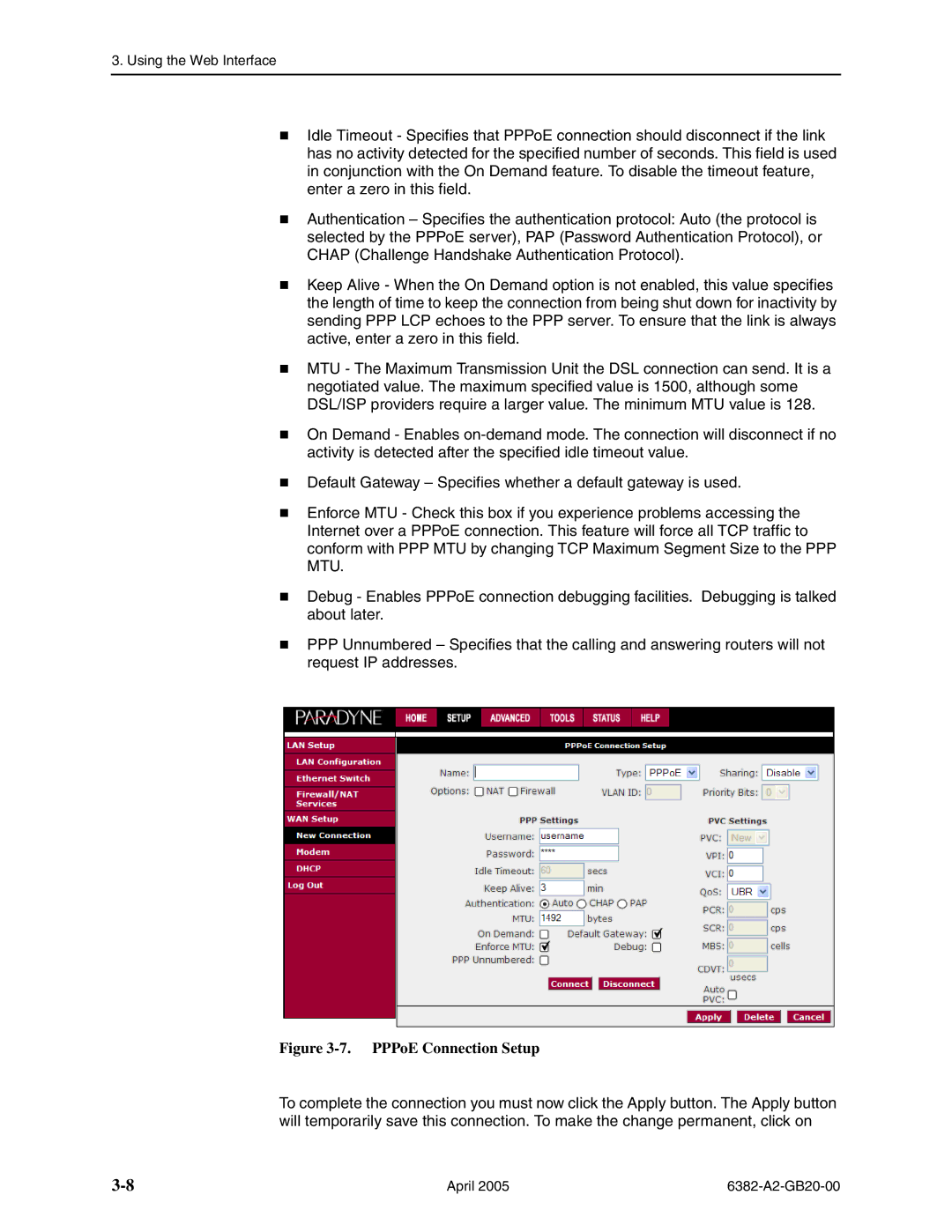
3. Using the Web Interface
Idle Timeout - Specifies that PPPoE connection should disconnect if the link has no activity detected for the specified number of seconds. This field is used in conjunction with the On Demand feature. To disable the timeout feature, enter a zero in this field.
Authentication – Specifies the authentication protocol: Auto (the protocol is selected by the PPPoE server), PAP (Password Authentication Protocol), or CHAP (Challenge Handshake Authentication Protocol).
Keep Alive - When the On Demand option is not enabled, this value specifies the length of time to keep the connection from being shut down for inactivity by sending PPP LCP echoes to the PPP server. To ensure that the link is always active, enter a zero in this field.
MTU - The Maximum Transmission Unit the DSL connection can send. It is a negotiated value. The maximum specified value is 1500, although some DSL/ISP providers require a larger value. The minimum MTU value is 128.
On Demand - Enables
Default Gateway – Specifies whether a default gateway is used.
Enforce MTU - Check this box if you experience problems accessing the Internet over a PPPoE connection. This feature will force all TCP traffic to conform with PPP MTU by changing TCP Maximum Segment Size to the PPP MTU.
Debug - Enables PPPoE connection debugging facilities. Debugging is talked about later.
PPP Unnumbered – Specifies that the calling and answering routers will not request IP addresses.
Figure 3-7. PPPoE Connection Setup
To complete the connection you must now click the Apply button. The Apply button will temporarily save this connection. To make the change permanent, click on
April 2005 |
|
